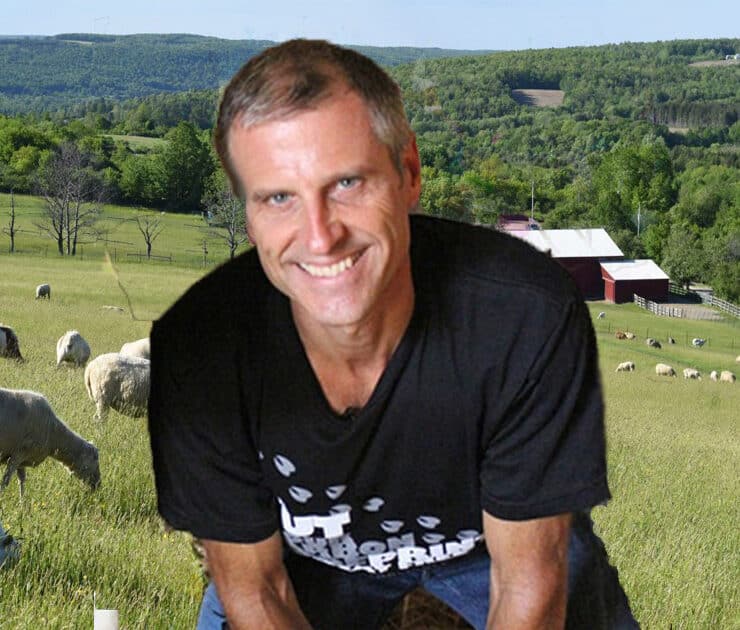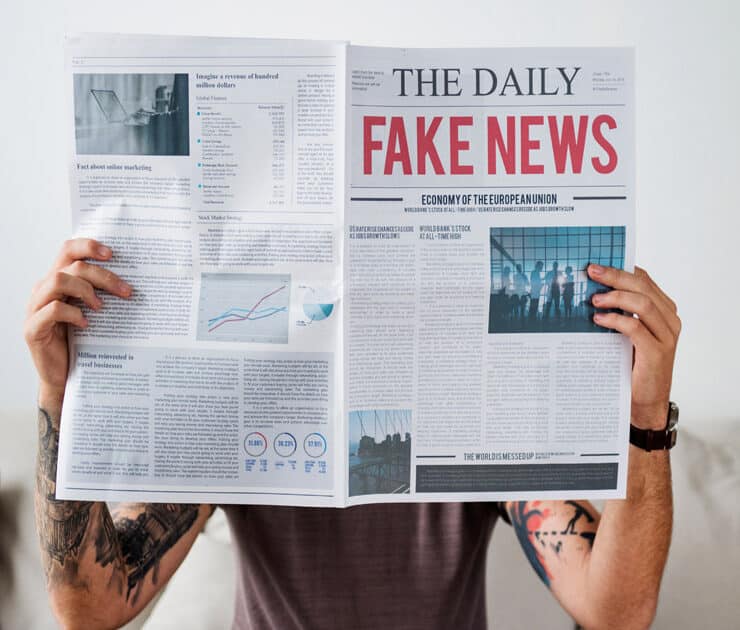New Legal Fights to End Discrimination Against Vegans

Legal fights to end discrimination against vegans have taken place all over the world with different degrees of success, and some are happening right now
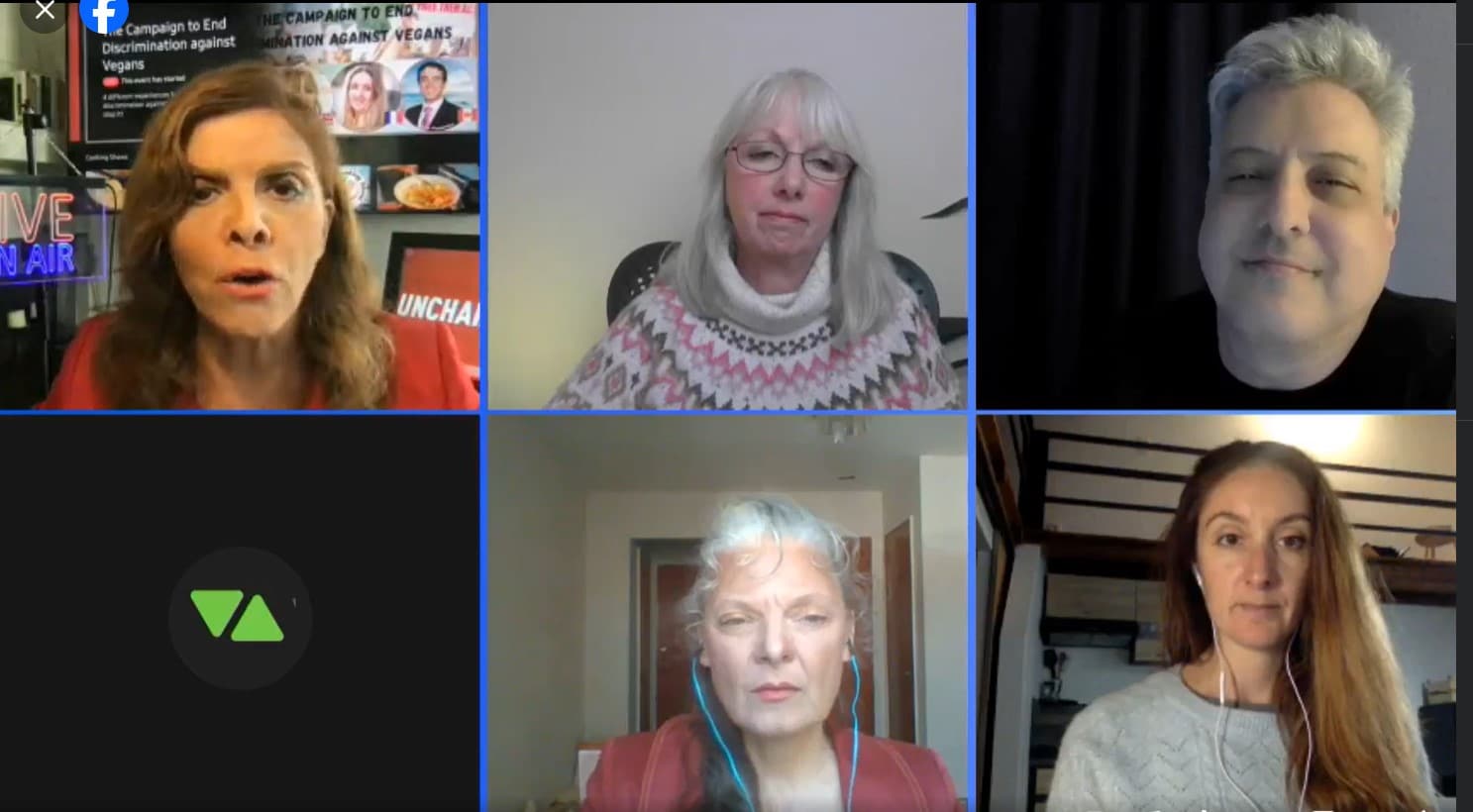
Los Angeles, October 16, 2023 — As the number of vegans grows, so does the number of vegans who say they are experiencing discrimination in their workplace, in their schools, in hospitals and institutions and even on public streets during protests. All over the world, vegans have been unfairly discriminated against for upholding a philosophy that could save the planet. However, a growing number of vegans who’ve experienced prejudice and discrimination have taken their fight to the courts. Their success could become a cultural game changer.
UnchainedTV’s Jane Velez-Mitchell gathered a panel of experts on this issue. These experts are currently leading the fight for justice for those who insist on compassion in their choice of food, clothing, furniture, entertainment and overall lifestyle. The Vegan Society’s International Rights Network founder Dr. Jeanette Rowley from the UK, plaintiff Astrid Prevost from France, attorney Jerold “Jerry” Friedman from California, and attorney Tamara Bedic from New York joined Jane for this fascinating conversation, which you can watch here:
Fighting Discrimination Against Vegans in France
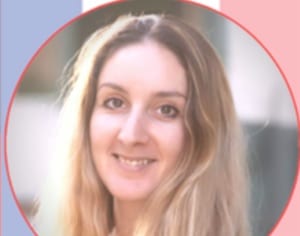
Astrid Prevost is an ethical vegan and aspiring dietician. She battled bulimia for several years until veganism gave her the strength to create food boundaries and achieve food sobriety. In respecting other animals, she found self-respect. Those boundaries are now being tested by a cooking class that demands she use animal products or risk failing. Courageously, Prevost initiated a lawsuit in France alleging discrimination, the first of its kind in that country. She explains more:
“In the program for the official French degree, there is a cooking class, and for this cooking class, I asked for a special arrangement. I asked to cook without animal products, and I was ready to make the same recipes as everybody else… I was denied being allowed to cook vegan recipes, so that’s why I brought my case to court, especially because it put me under a huge amount of stress.”
In August 2023, Prevost sued the French Education System, and the case, which can take up to 14 months, is still pending. However, she is optimistic:
“I think there’s a good chance I can win. We reviewed what my lawyer brought to the justice system and I think it worked really well.”
“Vegan rights are animal rights, because if we are prevented from eating vegan, if we are prevented from cooking vegan, it’s the animals who suffer in the end.”— Astrid Prevost, ethical vegan
A Breakthrough Case in the UK
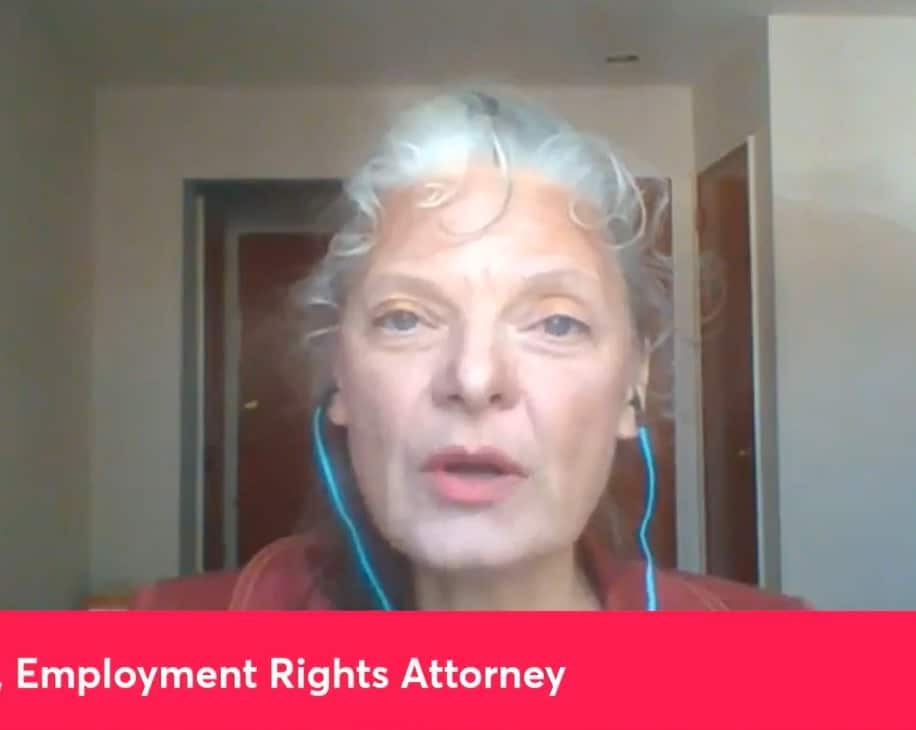
Across the channel from France, a previous case brought to the UK Employment Tribunal in 2018 ended up being a huge success, establishing greater protections for all vegans in the United Kingdom. I happened to be the person who filed this case after I was fired because I was an ethical vegan concerned about where the pension provided by my former employer was invested. I presented more than 1,200 pages of evidence and, in 2020, a judge ruled that ethical veganism is a protected philosophical belief under the UK’s Equality Act 2010.
Tamara Bedic is an employment rights attorney from New York, a past-President of the NYC chapter of the National Lawyers Guild, and currently the chair of its Animal Rights Committee. She said this about my case:
“It’s a wonderful victory, and it happened about three years ago now. Jordi Casamitjana, and his solicitor Peter Daly, are well known for this — and loved for this. They really received incredible media attention when this finally came out in 2020. And, the decision really echoed throughout Great Britain and lots of different corporations sat up and took notice and, indeed, changed the way they cater. So, in the UK, this fight was won, in the continent of Europe, not yet, but there is hope, and in the US, not yet, but we continue the struggle here too.”
Bedic also talked about a legal case that is currently being tried in Ontario, Canada, about a vegan firefighter who was not given adequate food, and another ongoing case in Switzerland:
“The gentleman in Geneva, Switzerland, who is taking his case to the European Court of Human Rights, he was also ridiculed while in detention for 11 months because there was nothing that he could eat besides bread, so I think we’re in the early chapters of this fight.”
“We really must win. It’s not just about individual victories for individual vegans. It’s not even about a victory in court that will help your vegan friends as well. It’s also about saving the planet.” — Tamara Bedic, NYC attorney
The European Union Could Soon Follow Suit
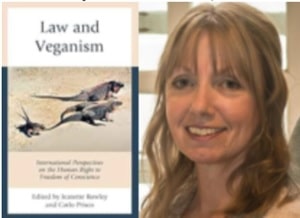
Dr. Jeanette Rowley holds a PhD in veganism and human rights and has published widely on the subject of legal protection for vegans. She founded and chaired The Vegan Society’s International Rights Network in the UK. In 2022, she and Dr. Carlo Prisco edited the first textbook on this issue, “Law and Veganism: International Perspectives on the Human Right to Freedom of Conscience.” She explains the role of the European Human Rights Convention regarding the belief on veganism:
“It’s a very serious issue, and the reason for this gets down to the human right to freedom of thought, conscience, and religion. That’s a long title, but it’s commonly reduced to freedom of belief or freedom of conscience. And freedom of conscience is one of our most important human rights. The Human Rights Committee has already stated that the right to freedom of conscience is far-reaching and profound. It includes new beliefs, emerging beliefs, and certainly it includes beliefs with a dietary element. So, given the fact that it’s one of our most important human rights, and states have a duty to make sure we have access to our rights, then anybody who works for a state body shouldn’t be denied food that aligns with their ethical convictions.”
“It’s absolutely about policy change and keeping the animals front and center, that’s what matters. If we can bring about widespread policy changes by bringing these cases, then we should do it.”— Dr. Jeanette Rowley, The Vegan Society
Fighting Discrimination Against Vegans in the USA
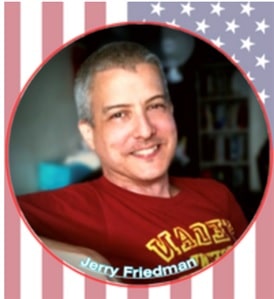
Jerold “Jerry” Friedman is an ethical vegan, an animal rights activist, and a California attorney. He is the founder of the Animal Law Practitioner listserv that helps animal attorneys from across the USA collaborate and is a long-time member of the National Lawyers Guild. He was involved in one of the first attempts to make veganism a protected class. In the late 1990s, before he was a lawyer, he was offered a job. But, once he refused to take the MMR vaccine because of his ethical veganism beliefs, that offer was rescinded. Jerry sued, essentially claiming that his beliefs were a creed akin to a religion. Unfortunately, he was not successful in the first stages, and the case has not progressed since. He believes he should have won as there was already a good precedent for his case involving two atheists. He explains:
“Two soldiers in Vietnam wanted to be medics instead of soldiers. The US Army resisted and that went up to the Supreme Court. Then, the Supreme Court said that, essentially, their atheism does not disqualify them from religious protection. So, we would need a case similar to that.”
It seems that, at least in the US, to make veganism a protected class, vegans who experience discrimination must take legal action, and then – perhaps – lose at the lower court levels and then appeal. Although this seems counterintuitive, Friedman explains why it could work:
“The way that these laws are established in the courts is that there has to be a constant battle going up to the Supreme Court, so somebody has to lose at the trial level, somebody has to appeal, somebody has to appeal again to the Supreme Court, and the Supreme Court has to hear the case. So, until that case comes about, we’ll keep having these skirmishes in the lower courts. Hopefully, someday, the Supreme Court will recognize we’re not in a theocracy, there is not one definition of religion, but – rather – that the creed of veganism is worth protecting as a protected class.”
“This is a movement of conscience. This is a movement of nonviolence. This is a movement to let non-human animals live the lives that they want.” — Jerry Friedman, attorney
What's Your Reaction?
Jordi Casmitjana is a vegan zoologist and author.




